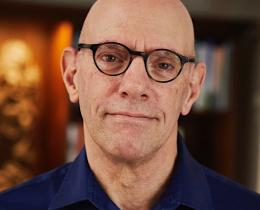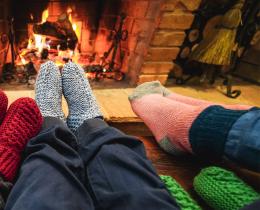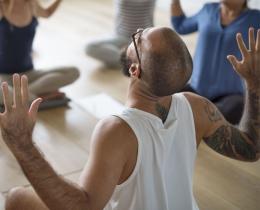As we start a new year, we are reminded frequently that we need to wake up and actively look to the 525,600 minutes ahead of us. We are told to shore up our physical immune system using food, exercise, and resolute strategies. The success of those strategies, however, can depend on how we first shore up our emotional and spiritual immune systems.
Find Time to Go Within
That can be a hefty task, especially if wrapping up the year was more difficult or fatiguing than we anticipated. The passing of a holiday season can leave a trail of emotions that may cover the gamut from joy to despondence, leading to what Mark Nepo calls bittersweet.
Everything is beautiful and I am so sad.
This is how the heart makes a duet of
wonder and grief.
— Mark Nepo
Life’s mixture of pain and pleasure can cause us to reflect with some melancholy about endings. “One of the great truths in this life is that if we know love, we will know loss,” says Mark. “The more we love, the more the loss will hurt. Yet, if we don’t love, what’s the point in being here?”
Master Mingtong Gu also speaks of this experience as part of our wholeness, which we note when we turn inward.





